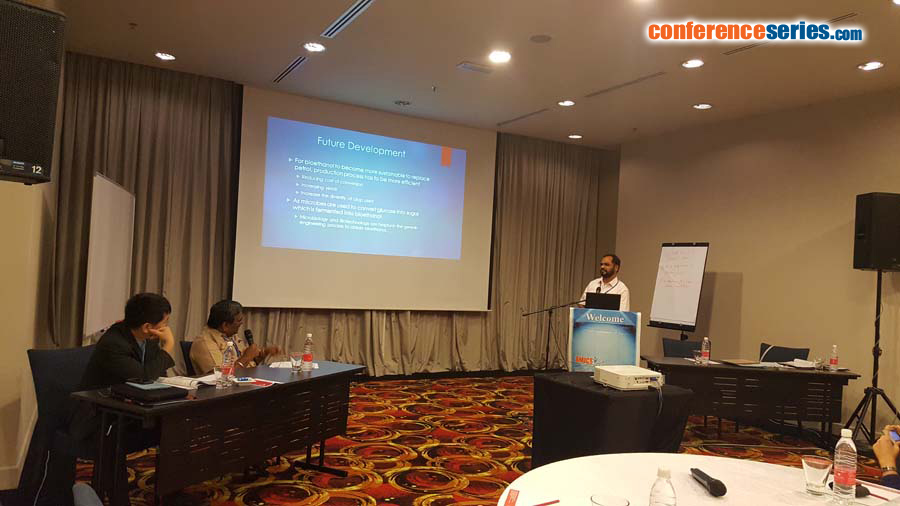
S Rajkumar Immanuel
The American College, India
Title: Bioethanol production from Banana pseudostem by recombinant yeast Saccharomyces cerevisiae as an sustainable energy
Biography
Biography: S Rajkumar Immanuel
Abstract
The conversion of plant cellulose biomass to fuel ethanol by microbial fermentation is the priority area of research, and the use of industrially suited microorganisms for the cost-effective biofuel production is the major technical challenge. Bioethanol is a promising renewable energy source, eco-friendly and causes maximum reduction of negative environmental impacts generated by the worldwide utilization of fossil fuels. India is amongst the largest banana (Musa balbisiana) producing countries and thus banana pseudo stem is commonly available agricultural waste to be used as lignocellulosic substrate. Present study focuses on exploitation of banana pseudo stem as a source for bioethanol production by using recombinant yeast Saccharomyces cerevisiae. Various pretreatment techniques namely dilute hydrochloric acid and sodium hydroxide combined with high pressure steam treatment and steam autoclaving treatment were conducted for mechanically pretreated banana pseudo stem and sugarcane bagaasse (milled ~ 150 mesh) for different time intervals (5, 10 and 15 min). The recombinant S. cerevisiae strain expressing cellulase gene was used for ethanol production using 4% Nacl pretreated banana pseudo stem, 2% NaOH pretreated Coir Pith and 4% NaOH pretreated Sugarcane bagasse as substrates were used by simultaneous saccharification and fermentation method at the optimized process conditions to degrade hemicellulose and lignin to facilitate maximum release of reducing sugars. The hydrolysate obtained after acid, alkali and physical treatments was fermented by recombinant S. cerevisiae. It was observed that the recombinant S. cerevisiae strain was found to ferment ethanol from pretreated cellulosic substrates and produced ethanol 13% (using 4% NaOH pretreated banana pseudo stem), 6% (using 2%NaOH pretreated coir pith) and 8% (using 4% HCl pretreated sugarcane bagasse). The genetically engineered S. cerevisiae could surpass the traditional first generation bioethanol processes by promising for higher alcohol tolerance and conversion efficiency using pretreated banana pseudo stem as a cheaper substrate for ethanol production.


